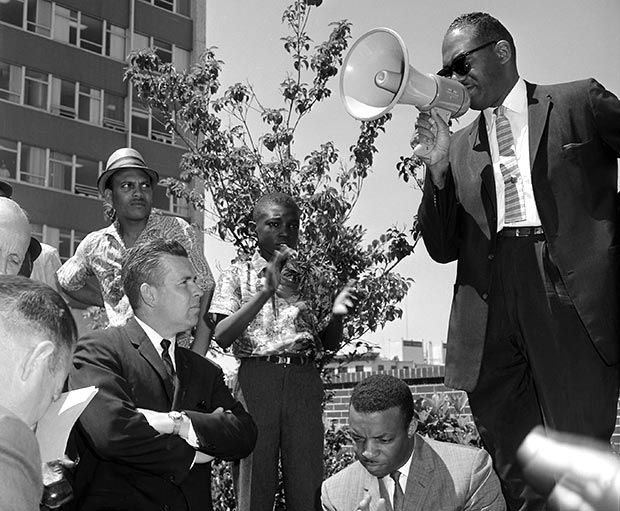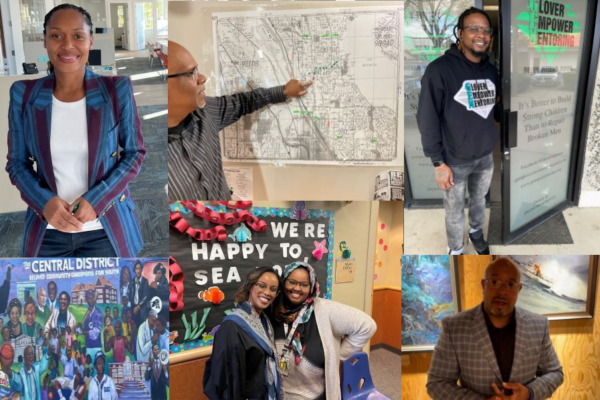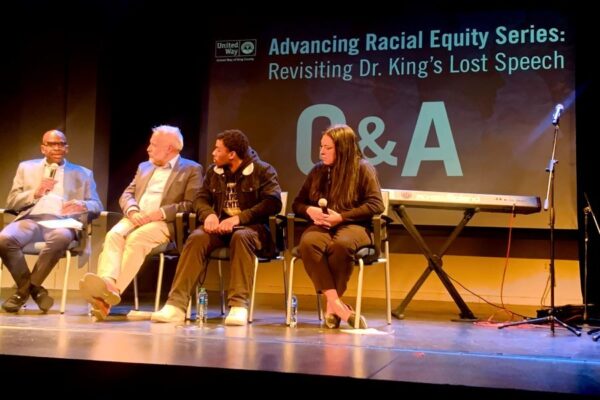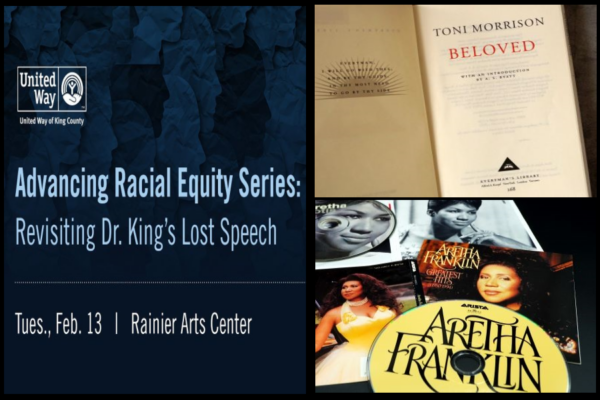During This Black History Month, There’s Much Work to Do
Seattle’s Black History is replete with leaders from public, corporate and religious sectors who for generations have advocated for and amplified the concerns of communities.
I remember, while growing up here, a time when the definition of a Black leader in Greater Seattle was a pastor, a judge, a lawyer or a doctor. They were few, but they made sure that the voices of Black people were heard by the mainstream—regardless of whether folks were prepared to listen.
Back then, if people were curious as to how an issue would impact the Black community, they’d consult leaders like Rev. Samuel B. McKinney (of Mount Zion Baptist Church), Sam Smith (of the Seattle City Council), Superior Court Judge Charles V. Johnson, or Washington State Senator George Fleming.

For the most part, they were regarded by the mainstream as having a finger on the pulse of the communities they lived in. But I remember during that time someone outside of the Black community offered a backhanded compliment about the leaders’ views. The person said, “It will be a better day when the state of Blacks in Seattle is not defined by the opinions of a couple of preachers or elected leaders.” That person implied that no one individual speaks for a whole community or people.
And that is true. Yet back then, those Black leaders were messengers for their community’s views, not gatekeepers. Because Seattle at the time was more racially segregated than it is now, those leaders shared stories about the plights of their people to public and private sectors that probably wouldn’t have ventured into Black communities to hear what the whole community had to say. In the process, they made the whole community feel heard and confident that someone was advocating on their behalf.

Today, we have Black leaders in all sectors of Seattle society. Some, like Michelle Merriweather of Urban League of Metropolitan Seattle and Shomari Jones of the Bellevue School District, sit on United Way of King County’s board of directors. Others, like US District Court Judge Richard Jones and Dr. Ben Danielson have been the pride of our community for decades. Alesha Washington, leader of the Seattle Foundation, is relatively new to the Puget Sound region and an exemplary leader. We now serve many diverse communities in this region, yet neither they (nor I as president and CEO of United Way of King County) would ever purport to have a finger on the pulse of an entire community. Yet we all deem it our responsibility to serve and advocate for those who have historically been denied access to opportunity due to years of systemic racism.
It is our hope that our lived experiences— both inside and outside our communities—enable us to connect with people of all backgrounds and across all generations. We want the communities we serve to know that they are seen, heard, and supported. We want people outside of those communities to know that their neighbors are often struggling to get by in one of the wealthiest counties in the nation. We seek to replace othering with belonging, so that we all recognize the common humanity that exists in us, and no one is regarded as “them over there.”
For me, it took a Black leader to help sensitize me to the importance of supporting people who were experiencing homelessness or were unstably housed. That leader is Ron Sims, the former King County executive. He brought awareness to the issue in his role as an elected leader, but what most impressed me was that he walked the streets and ministered to the unsheltered to gain more understanding about the issue himself and to offer meaningful support.

Each year, Black History Month celebrations center on a particular theme launched by the Association for the Study of African American Life and History, a Washington, D.C.-based organization founded by Black History Month founder Carter G. Woodson. This year’s theme is African Americans and Labor, focusing on the various ways that work—free and paid, skilled and unskilled—has shaped the experiences of Black people. The work that Executive Ron Sims, Judge Johnson, Senator Fleming, and Reverend McKinney did to amplify the voices of their people likely wouldn’t show up on a job description, but it was as important as any paid duty, and it created opportunities for Black people for years to come.
Our work has never been more critical, as each day our national news headlines are filled with federal pronouncements that could derail generations of progress made to help the disadvantaged.
During this Black History Month, I challenge everyone to engage in the labor of learning about communities beyond your own. See how advocacy and activism has brought much needed relief and opportunities to communities where people often feel unseen and unheard. And recognize that much more needs to be done.
This article is from United Way of King County’s President and CEO Gordon McHenry, Jr. It is part of a monthly series to hear from our executive leadership.





Comments